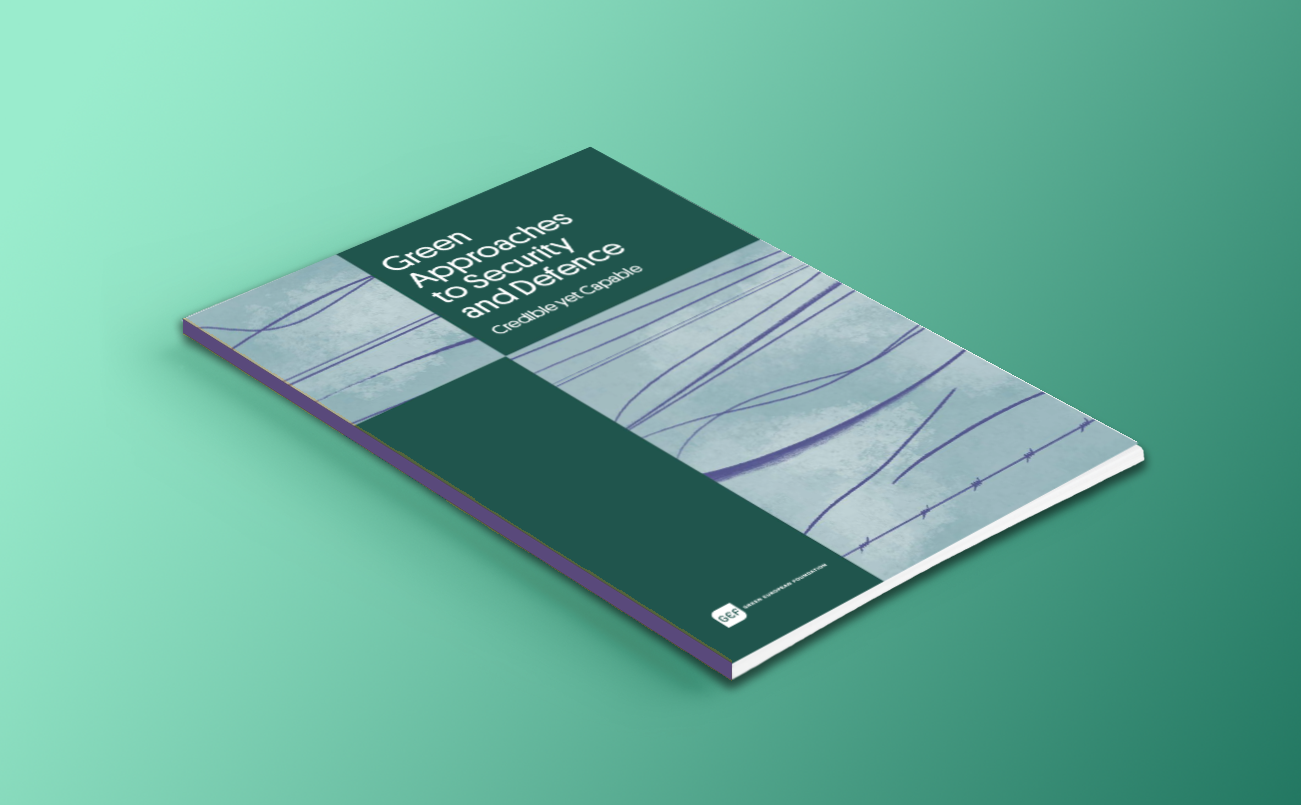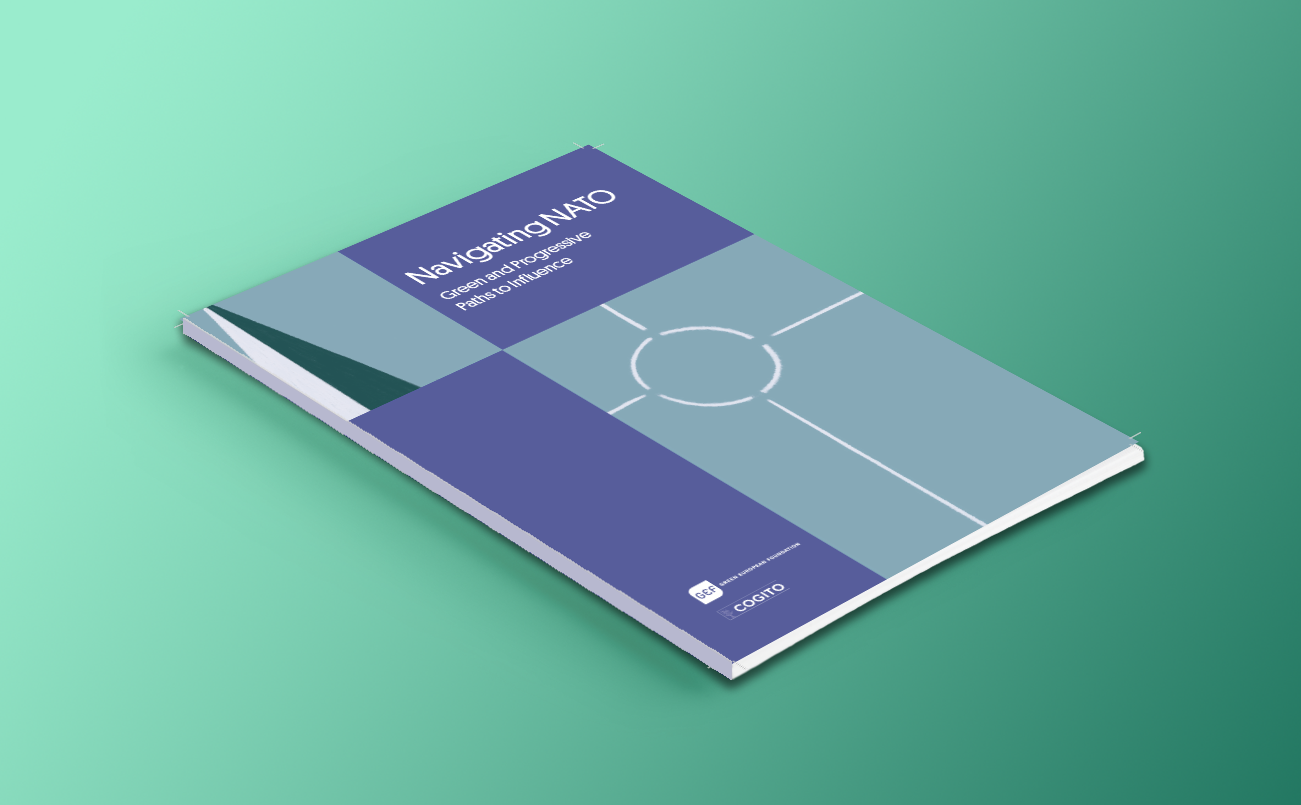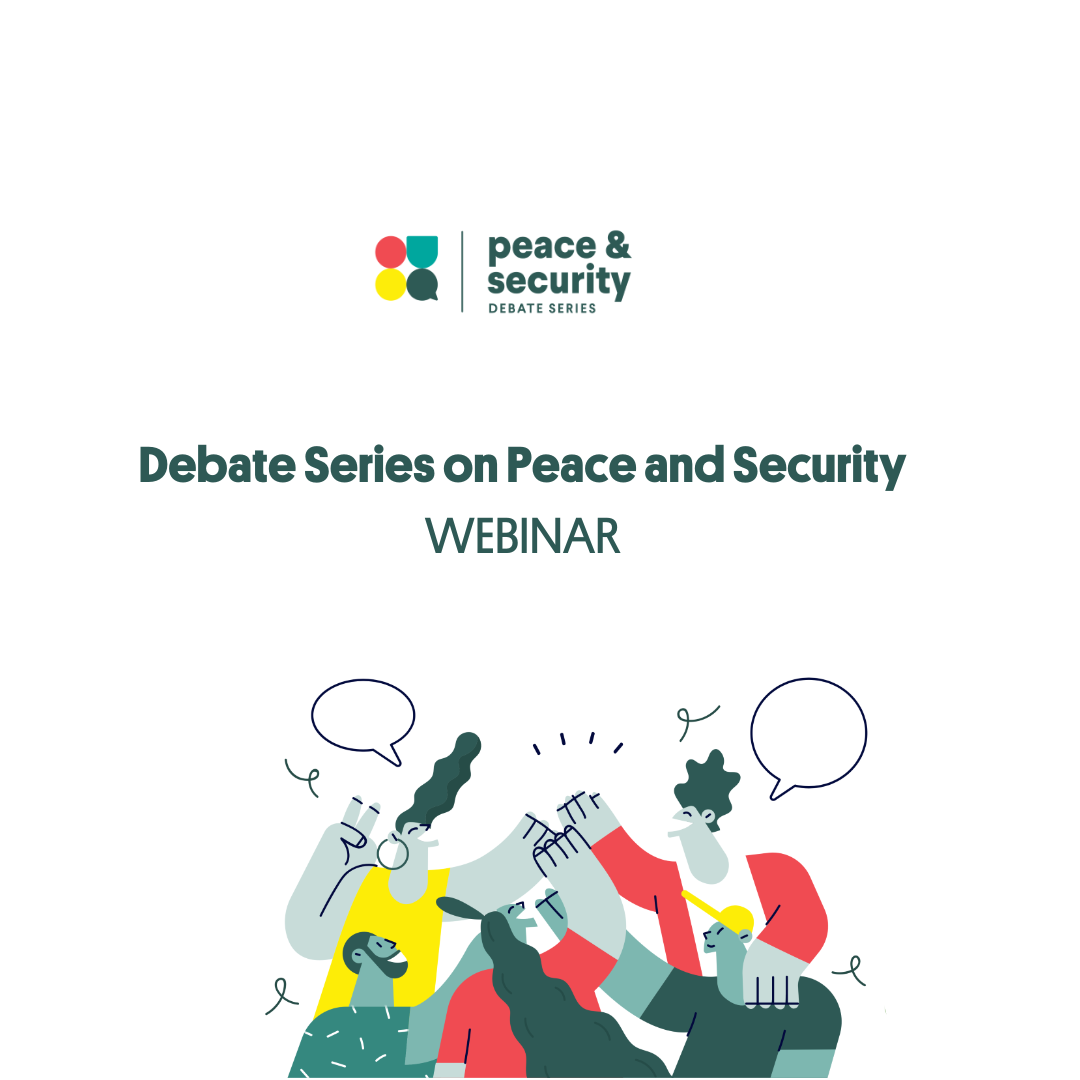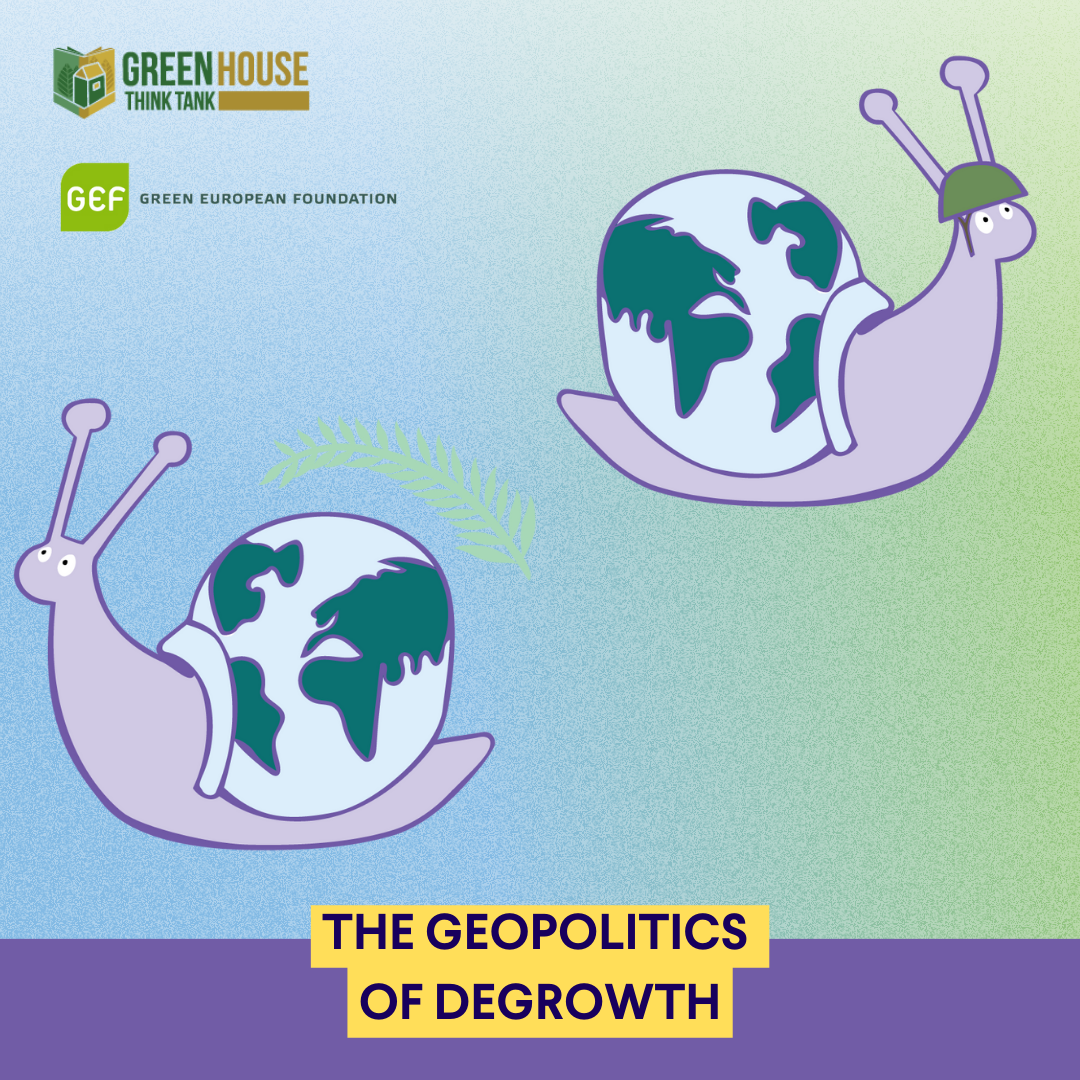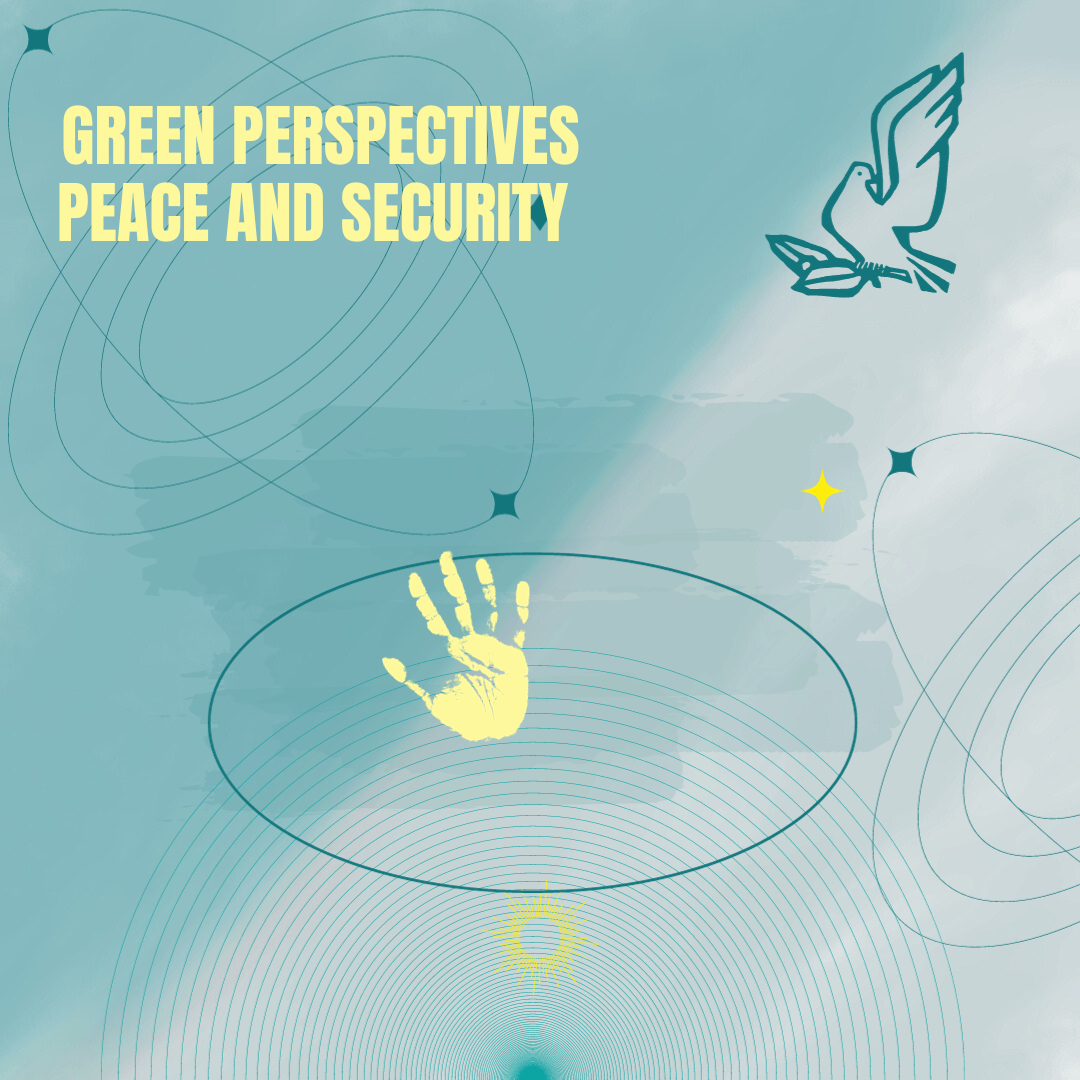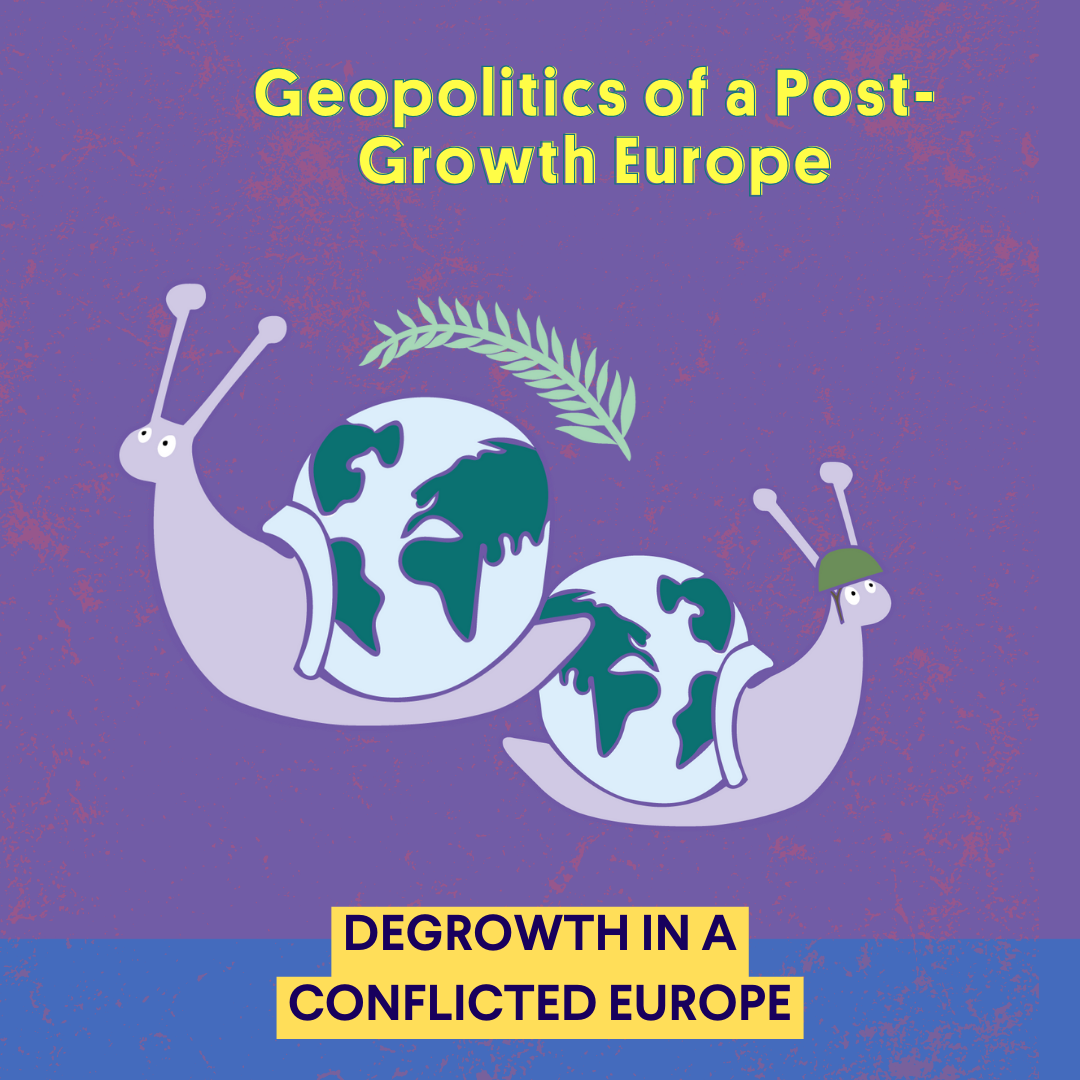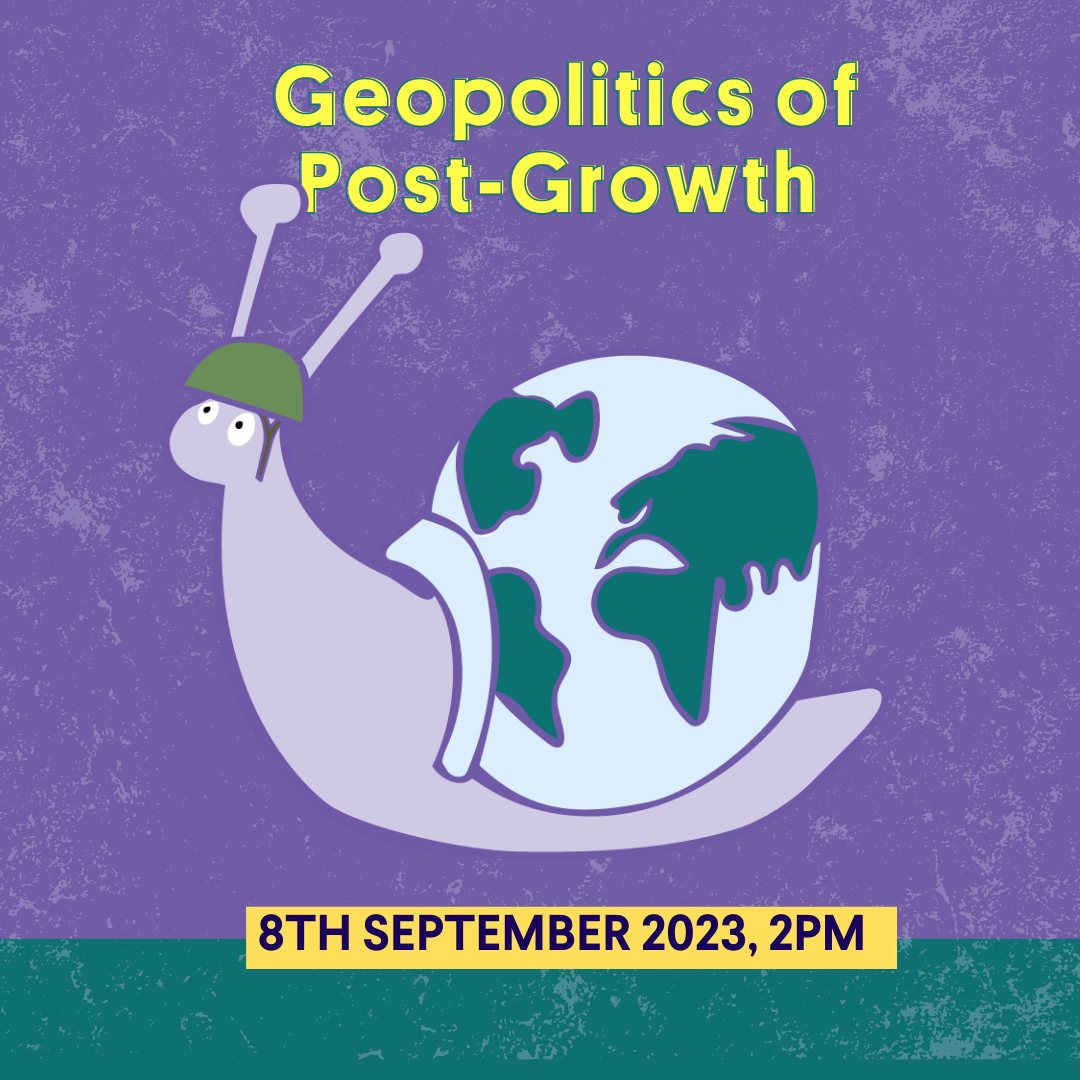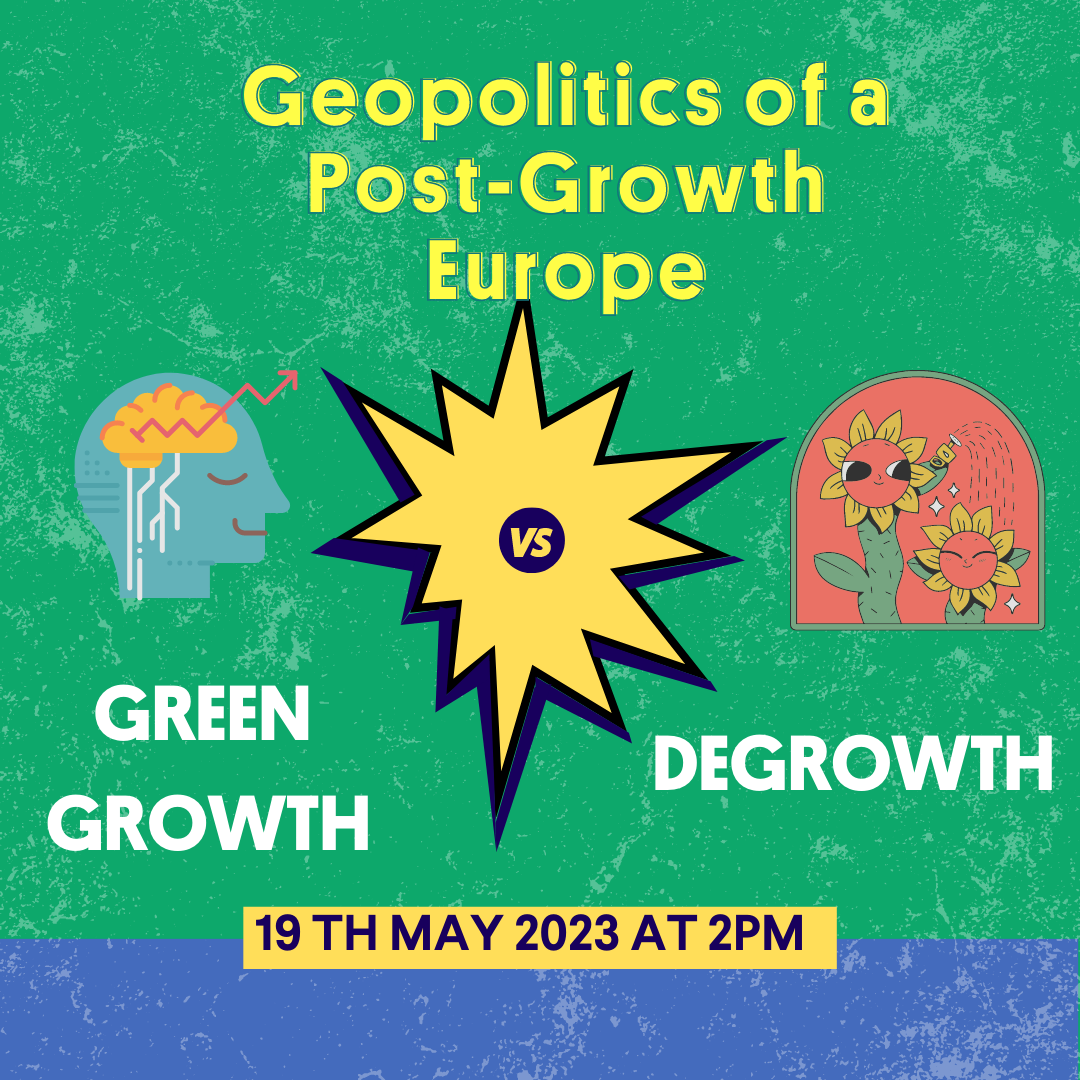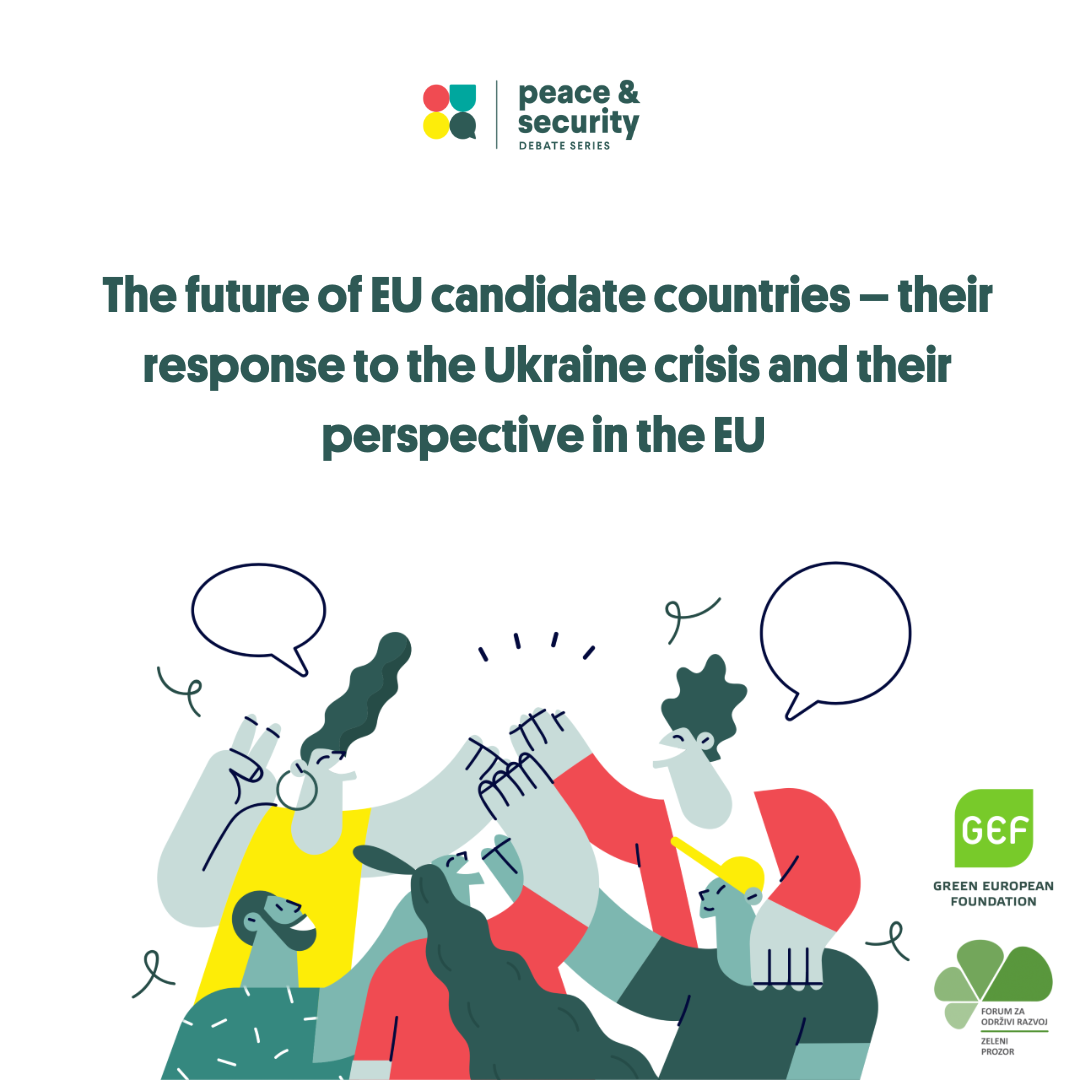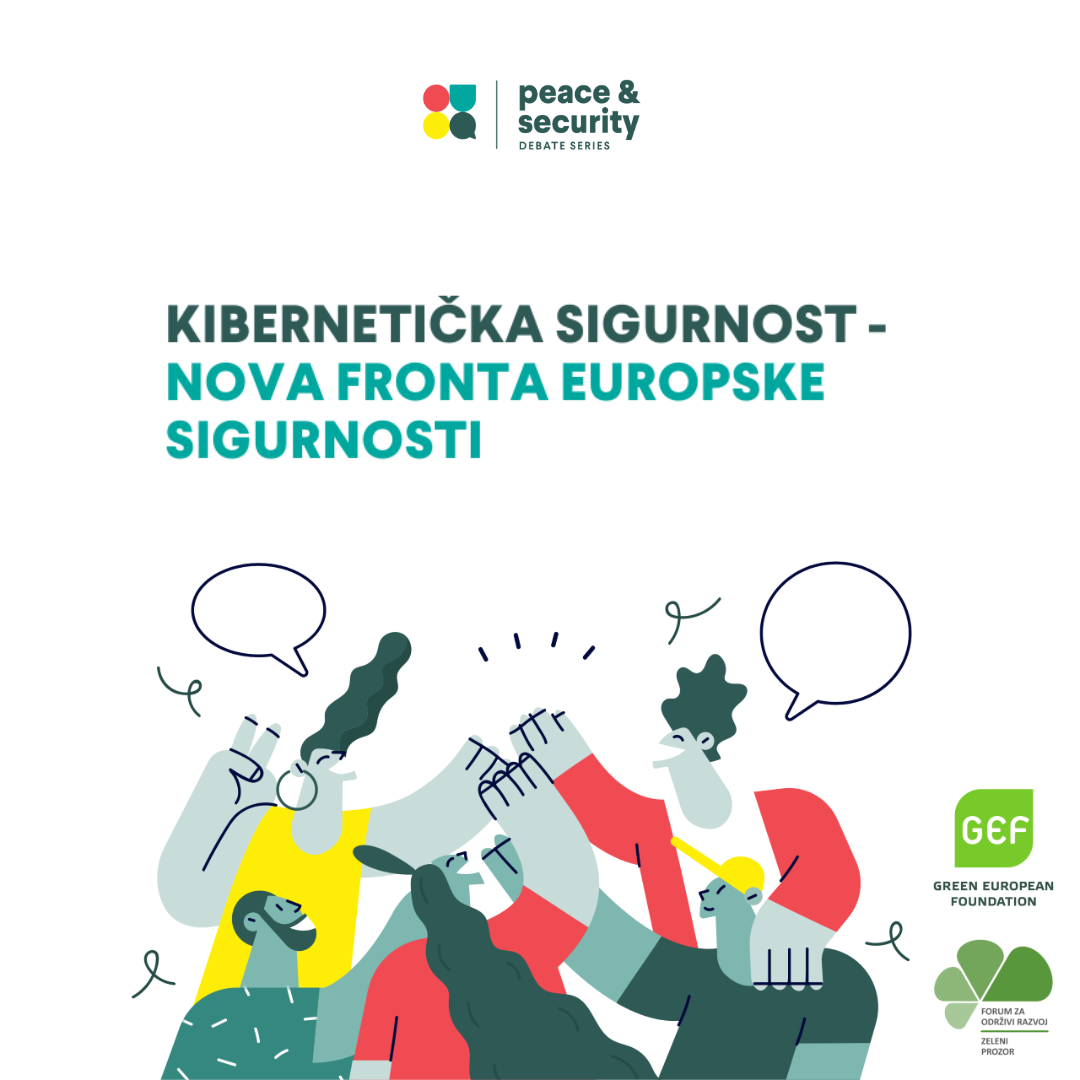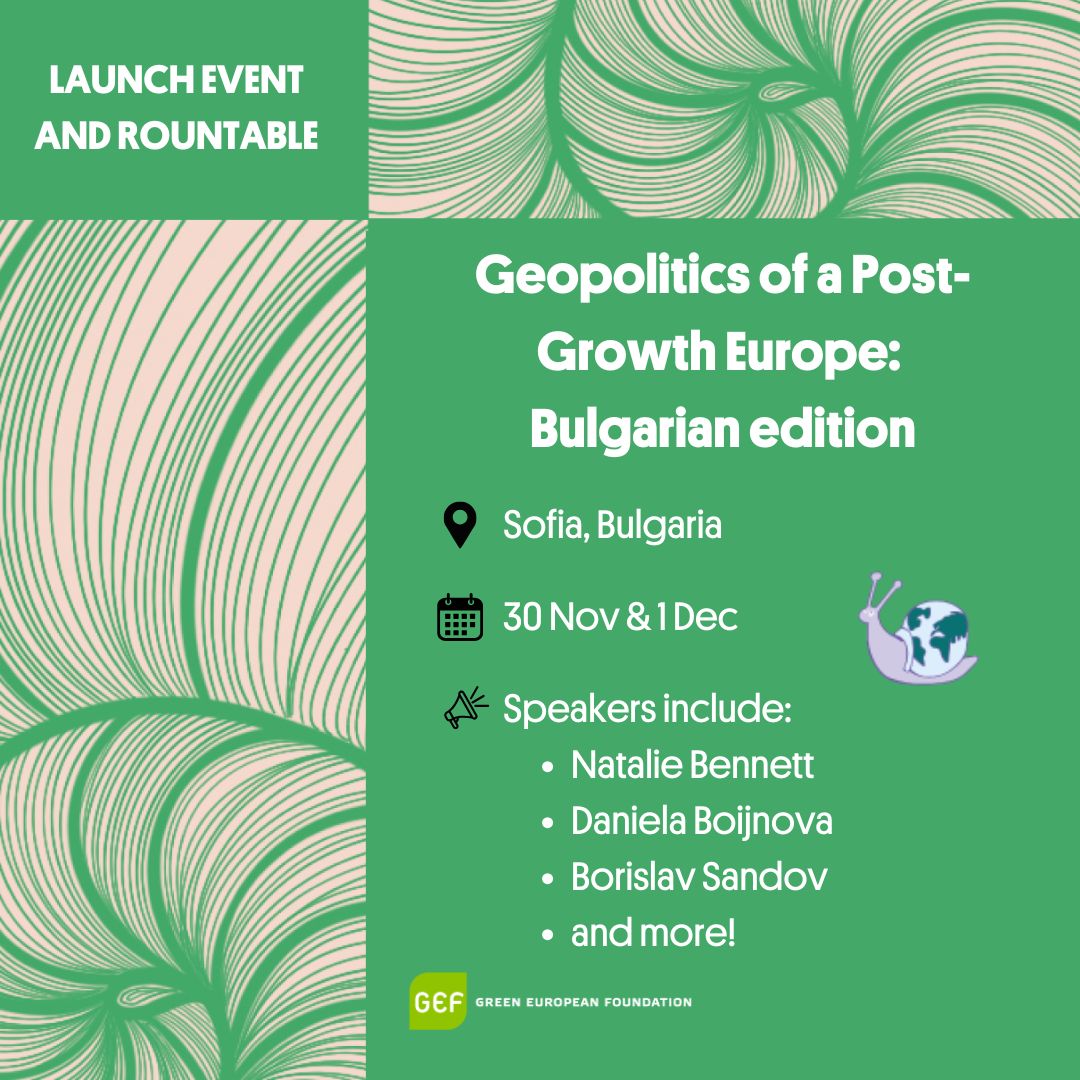
About the event:
GEF is hosting a festive launch event in Sofia to spotlight the Bulgarian edition of our publication “Geopolitics of a Post-Growth Europe.” This will be followed by an expert roundtable delving deeper into the policy dilemmas and potential synergies of Europe’s ecological and geopolitical security. Both events will bring together green activists, experts, researchers, policymakers, and civil society representatives, including inputs and interventions from other parts of Europe.
Project background:
In the project “Geopolitics of a Post-Growth Europe”, the Green European Foundation and its partners explored the tensions between degrowth/post-growth and geopolitics. The project worked to ignite a conversation between critics of economic growth and progressive thinkers on foreign and security policy, who now often operate in separate circuits. Find out more about the project and its findings at geopoliticspostgrowth.eu.
Programme and speakers:
Festive book launch and reception (Saturday, 30 November, 13:00 – 14:30)
With speeches and interventions by:
- Natalie Bennett, Green member of the UK House of Lords and member of the editorial board of the Green European Journal
- Carlos Teixeira, co-president of Instituto José Tengarrinha, Portugal
- Daniela Bojinova, Direct Participation Expert and Democracy International Board Member, Co-Chair, Bulgarian Green Movement
Expert roundtable: Geopolitical versus Ecological Security? Green policy dilemmas at a time of wars and pressure against European democratic values (Sunday, 1 December, 9:00 – 10:30)
- Keynote presentation by Richard Wouters (Wetenschappelijk Bureau GroenLinks)
- Moderated by Pavel Antonov (BlueLink)
- Discussants include: Daniela Bojinova (Direct Participation Expert and Democracy International Board Member, Co-Chair of the Bulgarian Green Movement), Borislav Sandov (former Deputy Prime Minister, Climate Policies), Magdalena Maleeva (Founder, Gorichka.bg), Dimitar Sabev (Green Economist, Bulgarian Academy of Sciences), Assen Nenov (Degrowth/Postgrowth Expert, Climate Fresc and Circular Economy Institute)
Practicalities:
Date and Time: November 30th (13:00-14:30) & December 1st (9:00-10:30)
Location: Krasno Selo Culture House, Sofia
Language: The event will take place primarily in Bulgarian, with some interventions in English. Whisper translation will be provided where necessary.
Registration: Both events are open to the general public, but you can register in advance via this link.
This event is organised by the Green European Foundation with the support of BlueLink and with the financial support of the European Parliament to the Green European Foundation.



